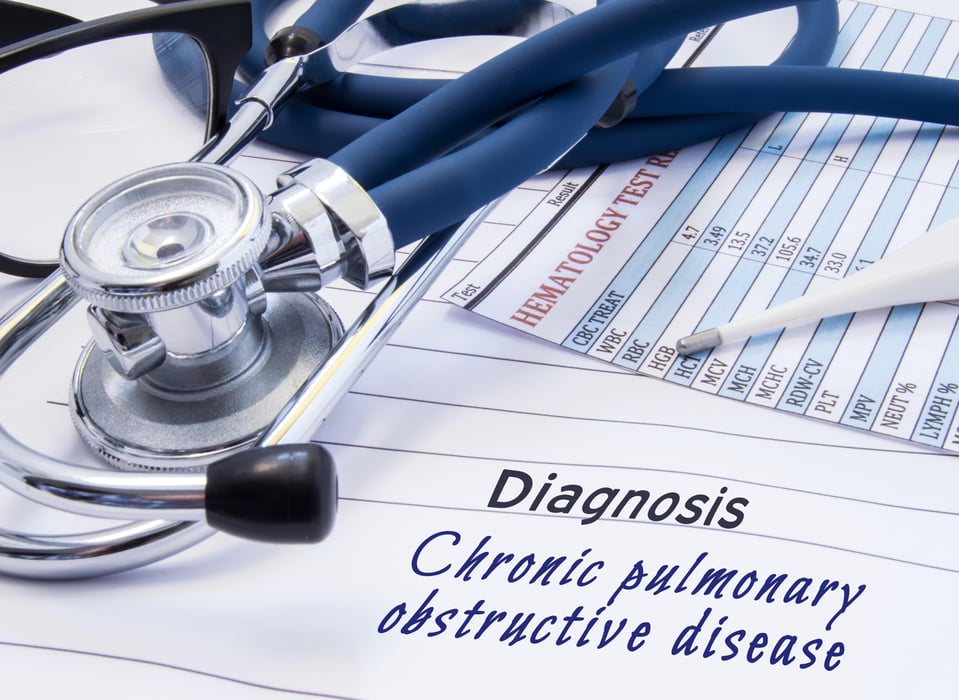Most People With COPD Enjoy Good Mental Health: Study

TUESDAY, Dec. 13, 2022 (HealthDay News) -- Surprisingly, most people suffering from chronic obstructive pulmonary disease (COPD) are in excellent mental health, Canadian researchers report.
Two-thirds of COPD patients don't suffer from common mental health issues such as depression, anxiety or addiction to drugs, the new study found. The key to well-being seems to be having the support of loved ones and not being isolated or lonely, according to a new study.
COPD is a progressive, debilitating chronic lung disease that includes emphysema and chronic bronchitis. The condition has previously been tied to mental health problems, researchers noted.
"This is not an easy disorder," said senior researcher Esme Fuller-Thomson, director of the Institute for Life Course and Aging at the University of Toronto.
But to see that two-thirds of people who have COPD -- which can make it hard to breathe and interfere with their ability to work and participate in family activities -- are overcoming those difficulties to the point that they are mentally flourishing is heartening, she said.
For the study, Fuller-Thomson and her colleague Sally Abudiab, a graduate of the University of Toronto's Factor-Inwentash Faculty of Social Work, looked at the mental health of 703 COPD patients. They found that 67% of the participants were in excellent mental health.
According to Fuller-Thomson, that meant being happy and satisfied with their life most of the time, having social and psychological well-being, and not being depressed or anxious, suicidal or addicted to drugs.
Still, those who were socially isolated were vulnerable to worse mental health, the researchers found.
"One of the main things was having a confidant, so social support is really, really key," Fuller-Thomson said. "People who had at least one person to confide in about important events were seven times more likely to be in flourishing mental health than those who were isolated without someone to confide in."
People with poor mental health were those who had previous bouts of major depression, anxiety or negative childhood experiences. Adverse childhood experiences, such as physical and sexual abuse, decreased the odds of COPD patients being free of mental illness by 31%.
Childhood adversities may delay developing positive coping skills and emotional resilience, and promote unhealthy behaviors, such as smoking and drug abuse, the authors noted.
Fuller-Thomson said that for COPD patients who are not in good mental shape, there are many things they can do to feel less isolated.
These include cognitive behavioral therapy and support groups, as well as family. Also, doctors should screen their COPD patients for depression and anxiety, she said.
"Many health professionals are very concerned with properly managing the physical demands of a serious chronic illness such as COPD, but we don't always screen for depression, anxiety, suicidality, the mental health consequences," Fuller-Thomson noted.
"I'm very happy that two-thirds are doing really well," she said. "But there is a minority of COPD patients that clearly would benefit from more targeted outreach and treatment."
The report was published recently in the International Journal of Environmental Research and Public Health.
Not being socially isolated and lonely is key to maintaining a healthy mental life, said Dr. Amit Mahajan, a volunteer medical spokesperson for the American Lung Association.
"As long as patients aren't stuck in isolation and stuck in these unfortunate physical constraints and have things that take their sickness off their mind, plus added support, people feel better and do more," he said.
For those who are isolated, there are online resources and pulmonary rehab where patients can be together with others who have the same condition, Mahajan added.
Millions of Americans have COPD and regularly suffer, Mahajan said.
"At the end of the day, this is a very challenging disease," he said. "It's very easy to fall into the trap of feeling down, feeling depressed, but there are ways to get yourself out of that by socializing, exercising and asking your physician about what you can do to improve your condition, both mentally and physically."
More information
For more on COPD, see the American Lung Association.
SOURCES: Esme Fuller-Thomson, PhD, professor and director, Institute for Life Course and Aging, University of Toronto; Amit Mahajan, MD, volunteer medical spokesperson, American Lung Association; International Journal of Environmental Research and Public Health, Dec. 6, 2022
Related Posts
El calor, el humo y el corazón: los incendios forestales provocan crisis cardiacas
LUNES, 15 de agosto de 2022 (HealthDay News) -- Aunque la mayoría de las...
Más evidencias de que el estrés aumenta la presión arterial
LUNES, 13 de septiembre de 2021 (HealthDay News) -- Si a menudo se siente...
Disparities Seen in Prehospital Pain Care of Traumatic Injuries
THURSDAY, Oct. 19, 2023 (HealthDay News) -- Non-White patients have a lower...
Disconnecting From Work in Off-Hours Can Make You a Better Manager
TUESDAY, April 18, 2023 (HealthDay News) -- Striking a better work-life balance...
